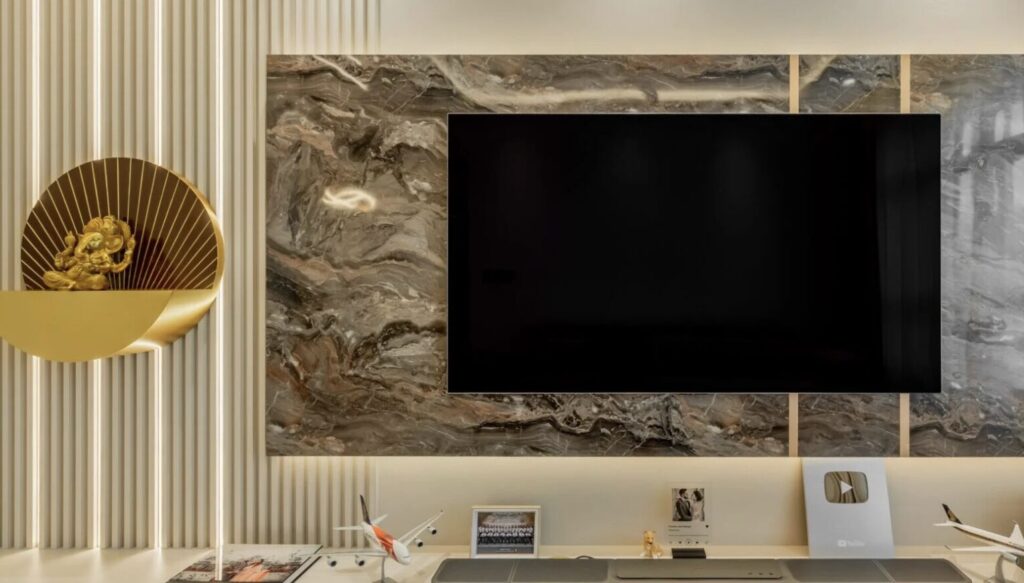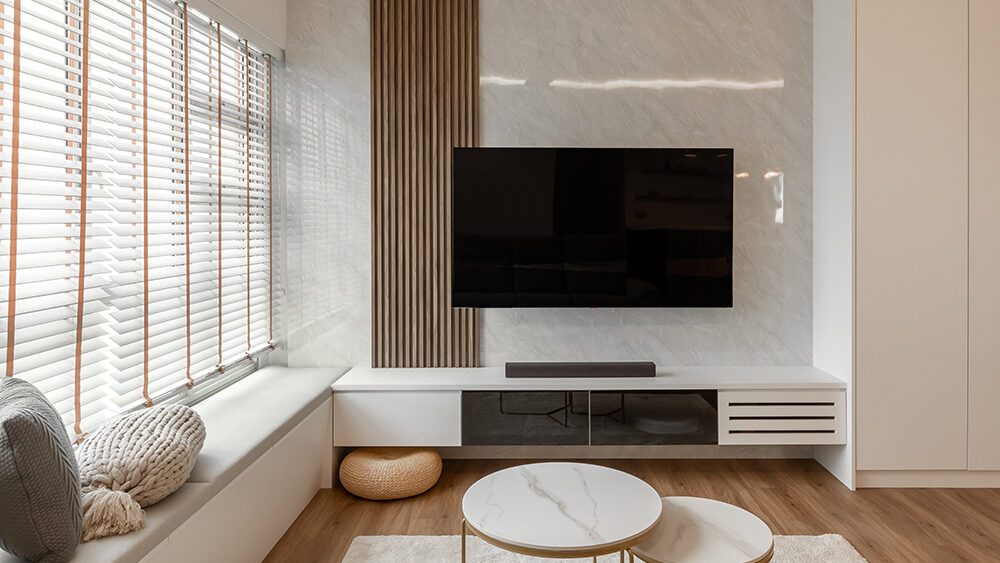Updated 5 Nov 2025
How to Choose the Right Renovation Company in Singapore
Renovating a home is craft plus coordination. The best results come from a clear brief, realistic timelines, and a reachable site team. Accreditations and listings are useful signals, not outcomes. Treat them as guardrails while you evaluate the people who will run your project day to day. Plenty of good firms are not in every scheme; assess the actual team and scope fit.
Start with clarity
Before you meet any firm, write down your scope room by room, the finishes you prefer, a budget range you’re comfortable with, and timing constraints such as key collection, MCST approvals, and lift bookings. This makes conversations faster, quotations more accurate, and changes less likely.
What the common accreditations actually mean
Homeowners in Singapore often see a handful of badges and listings. These aim to improve process discipline, safety, and compliance. They do not guarantee workmanship or schedule, and they do not replace a well-documented agreement between you and your chosen firm.
CaseTrust (for renovation businesses).
CaseTrust is a consumer-protection accreditation by the Consumers Association of Singapore. Accredited firms adopt a standard renovation contract, maintain a deposit performance bond that safeguards deposits in defined scenarios, and commit to a clear dispute-resolution pathway. How firms qualify: apply to CaseTrust, meet documentation and conduct requirements, adopt the standard contract, and maintain the bond. Coverage terms vary by provider; read the bond conditions carefully.
Housing & Development Board (HDB) Directory of Renovation Contractors (DRC).
For HDB flats, renovations must be carried out by contractors listed in the DRC. Listing signals the firm understands and agrees to follow HDB rules for flat safety and compliance. It is not a workmanship grade. How firms qualify: meet HDB’s entry requirements, agree to its terms, and maintain compliance to remain listed.
Building and Construction Authority (BCA) approvals for private properties.
Structural and certain addition-and-alteration works in private homes may need submissions and permits by a Qualified Person before work starts. Some minor works are exempt from plan submission, so confirm your scope early. How firms comply: engage a Qualified Person to determine if submissions are required, then obtain permits before commencement.
Energy Market Authority (EMA) licensing for electrical works.
Electrical installations must be carried out by a Licensed Electrical Worker of the appropriate class. How firms comply: appoint an EMA-licensed worker for design, installation, testing, and commissioning of electrical works.
PUB licensing for plumbing works.
Regulated water service and sanitary plumbing works must be carried out by a PUB Licensed Plumber in accordance with the Code of Practice. How firms comply: assign a Licensed Plumber for regulated works and keep records of inspections and tests.
bizSAFE (Workplace Safety and Health Council).
bizSAFE recognises companies that implement risk management and workplace safety systems. It is a safety process signal, not a design or quality grade. How firms qualify: progress through bizSAFE levels; Level 3 indicates compliance with WSH (Risk Management) Regulations following an independent audit.
Professional associations (SIDS, RCMA).
The Society of Interior Designers, Singapore (SIDS) admits professional members who follow a code of ethics and, for certain tiers, the SIDAC framework. Renovation firms may be members of the Singapore Renovation Contractors and Material Suppliers Association (RCMA), which provides industry training and standards advocacy. These are professionalism and community signals rather than consumer-protection schemes. How firms qualify: meet each association’s membership criteria and codes.
How to use these signals as a homeowner
Shortlist firms that are eligible for your home type and scope. For HDB flats, confirm the contractor appears in the DRC and understands your block’s restrictions. For private properties, ask early whether any part of your brief needs BCA submissions by a Qualified Person. For trade works, confirm who will be the EMA-licensed electrician and the PUB-licensed plumber. If a firm carries CaseTrust, read the standard contract they use and understand what the deposit performance bond covers. If they show bizSAFE, it indicates documented safety processes that matter during noisy, dusty site work.
The people and process still decide the outcome
Accreditations reduce information gaps. Day-to-day experience depends on the competence of the site team and the strength of your paper trail. Meet the actual designer and project manager who will handle your work. Understand which carpentry workshop will fabricate your joinery. Review recent projects that match your home type and finish level. Where possible, view a completed home to see details up close.
Our principles for designers we introduce
We look for teams who care about the craft and keep their word. Passion matters, but accountability matters more when things go off-plan. No renovation is perfectly smooth; defects, delays, and surprises happen. What we watch for is how a studio communicates, owns the issue, and resolves it with clear timelines, documented fixes, and respectful aftercare. We value designers who are transparent about scope and costs, who honour permits and safety, and who keep homeowners informed with practical updates. We do not remove a studio simply because one project had workmanship issues; we assess patterns over time and how the team learns from mistakes.
What to confirm before you sign
Aim for a written scope that includes drawings, material specifications, brand and model names, finish codes, and tolerances. Discuss how variations will be quoted, approved, and scheduled so you avoid misunderstandings later. Walk through a realistic sequence of works that includes lead times and site access rules. When you talk about payments, keep the discussion anchored to visible milestones such as site protection and demolition, M&E routing and wet works verified, carpentry delivered to site, and handover with a documented defects list. Discuss aligning any payment tranches with visible progress, and photograph each stage for your records. Clear structure keeps projects smooth for both sides.
Red flags that deserve a pause
Be cautious of large upfront payments before design is finalised or materials are verified. Avoid vague specifications and heavy use of provisional sums without unit rates. Ask for transparency on who is on your site team and which permits will be obtained. Be wary of pressure to skip approvals to “save time”.
If in doubt, ask us to verify the quotation issuer
This service is available only for studios we introduced to you. Before you pay or sign, we can help confirm that a quotation was genuinely issued by that same studio.
We will confirm the firm’s legal name and UEN on the document, ensure the stated payee or PayNow name matches the registered entity, and seek a quick confirmation through our established liaison with the studio team. Where appropriate, we may also request a brief confirmation from a principal at the studio. This is an authenticity check to reduce scam risk; it is not legal, financial, or technical advice, and we do not assess prices, scope, or quality. We share only what is necessary to confirm issuance.
If you’re already stuck with a renovation dispute
Put everything in writing. Keep a dated log, attach photos, and describe exactly what you want fixed and by when. If the project is in an HDB flat, confirm the contractor is on the DRC and ask to see approvals for your scope. These rules are about flat safety and compliance.
If your firm is CaseTrust-accredited, read the standard renovation contract and check whether your deposit performance bond applies. The scheme also anchors a mediation path via CASE if issues escalate.
If talks break down, consider whether your claim can go to the Small Claims Tribunals (SCT). As at 5 Nov 2025, the claim limit is $20,000—or $30,000 with both parties’ consent—and claims generally must be filed within two years of the event. Refer to the Judiciary’s site for eligibility and filing steps.
If structural or regulated trade works are involved, ask the firm to identify the Qualified Person (for BCA submissions in private properties) and the licensed trades doing electrical and plumbing works. Private structural/A&A may require approval before work starts; electrical must be done by an EMA-licensed worker; regulated plumbing by a PUB-licensed plumber.
How Redbrick Homes help
We curate introductions to firms that fit your brief, budget, and timeline. We share neutral checklists and examples you can use to discuss scope and milestones with your chosen firm. We facilitate first conversations and portfolio reviews, then step back so both sides decide next steps. On request, we can connect you with independent third parties for contract review or site inspections. If you have a quotation from a studio we introduced, we can help confirm that it was issued by that studio via our established liaison.
Note: Your contract is strictly between you and your chosen firm. Redbrick does not provide legal, financial, or technical advice. We do not supervise works or handle payments.
FAQs
1. Do I need an HDB-listed contractor for HDB works?
Yes. HDB requires contractors to be listed in the DRC to carry out renovations in HDB flats, and they must abide by HDB’s terms. This concerns eligibility and compliance rather than a workmanship grade.
2. When do BCA approvals apply?
Structural and certain addition-and-alteration works in private properties typically need submissions and permits by a Qualified Person before work starts. Some minor works are exempt from plan submission. Confirm your scope early.
3. Who should handle electrical and plumbing works?
Electrical works should be carried out by an EMA-licensed electrical worker. Regulated water service and sanitary plumbing should be handled by a PUB Licensed Plumber.
4. What does bizSAFE say about a firm?
It indicates the firm has documented workplace safety and risk-management processes. It is not a design or quality rating.
Your curated studio shortlist is ready.
Share your key collection and budget. We introduce up to 5 studios that fit your style, scope, and timing.
You set the pace. You choose who to engage.
Quiet checks that build trust
If you receive a quotation from a studio we introduced, we can confirm it was issued by them. This helps prevent fraud and keeps the process clear.
Introductions are complimentary.
Note: Verification applies only to studios introduced by Redbrick Homes. We’ll verify the issuer’s identity.




